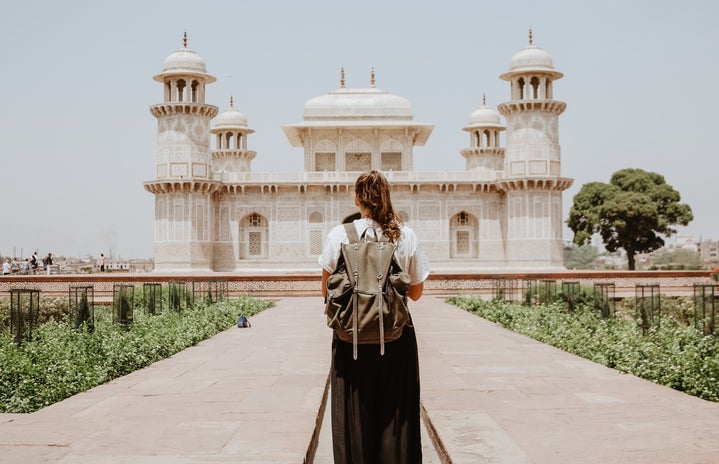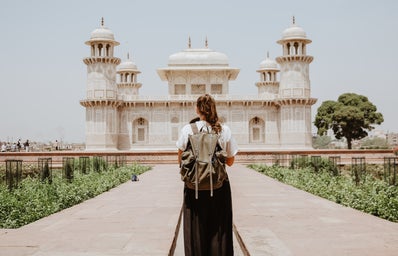There were many contributors to the suppression of my culture during adolescence. Hearing “that smells nasty!” when unpacking a home-cooked meal for lunch or getting bullied and mocked for my skin tone throughout my time in SoCal public schools. Being told, albeit through backhanded comments, that my culture was nasty for almost the entirety of my childhood and young adolescence. These all certainly had long-lasting effects on my cultural identity as a Desi woman.
Looking back I like to call it a form of “whitewashing,” except the person being whitewashed was myself, and the person doing the whitewashing also happened to be me. I was desperate for acceptance during childhood, so I repressed an identifying part of what made me, me, and remained ignorant for as long as I could. For the most part, this worked. I stopped bringing home-cooked meals for school lunch and the comments stopped too. There was a part of this that did not work out, though. While my school life was improving, I was growing to hate my culture. I never wanted to go to events with my parents, didn’t want to learn about my history, and thought cultural practices were boring. This attitude persisted until late high school when I finally sought to understand where I came from.
It was only when I moved away for university that I truly began to see what I had missed out on. While I did go to the “boring” events, so to speak, I complained the whole time and never truly saw what was going on. I look back on this now with regret, thinking about what might have been different had I paid a little attention and spent more time connecting with my family and our culture.
In university now, I am surrounded by a Desi community that is easy to fall back on for support and a friend group that encourages cultural expression. I realized the impact my childhood repression had on me growing up, and every day I fight to reverse it. I celebrate when I can and embrace my culture like I never did as a child. I think, in part, separation and time alone have helped me reconnect with my culture as well. The influx of cultural acceptance in my generation has been helpful as well, with the help of a university community to meet different people from my culture to connect with and learn from. Learning how to appreciate my roots and feeling inclined to gain more knowledge about them has been liberating and I’m so glad that I have been able to reach this point in my life sooner rather than later.


